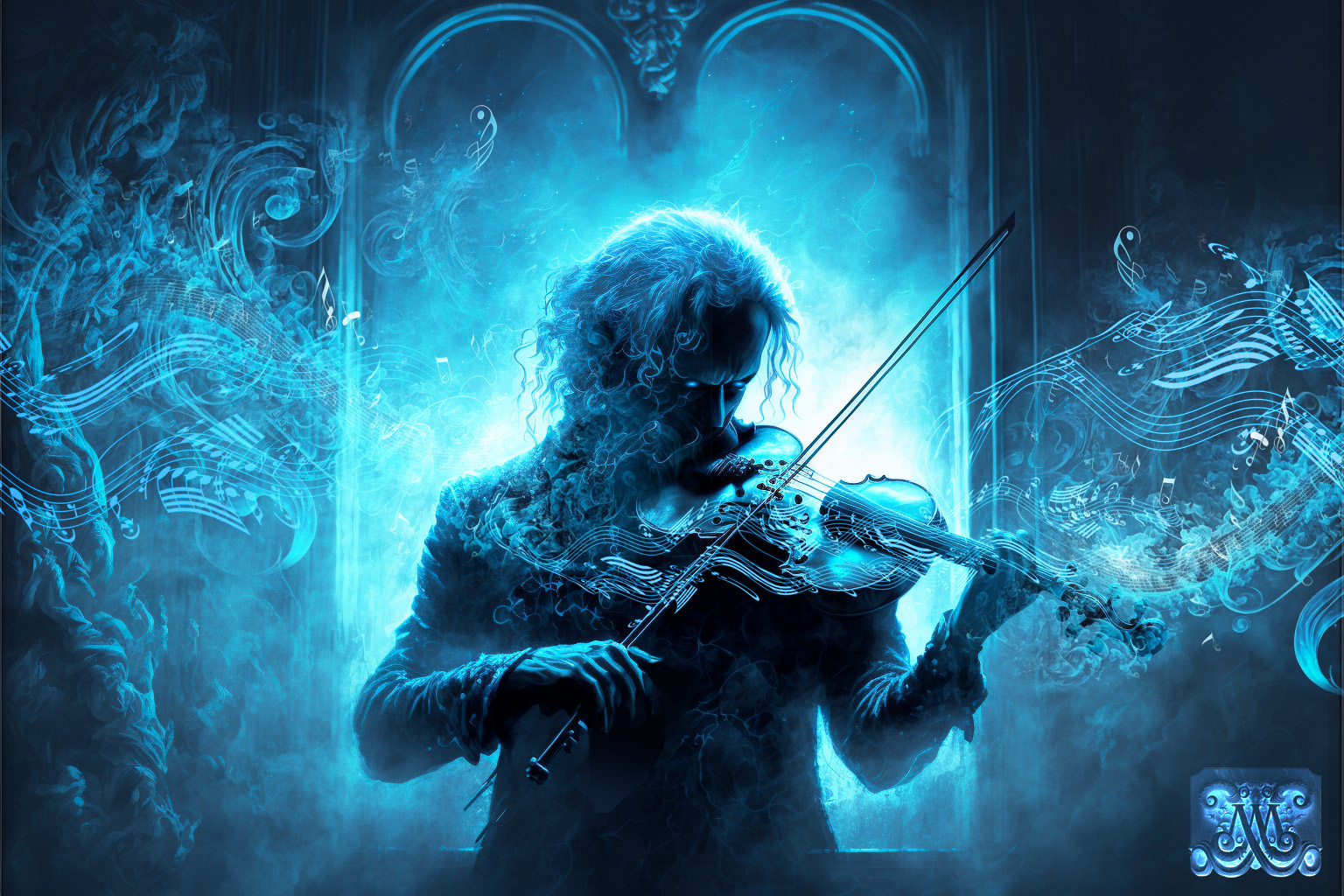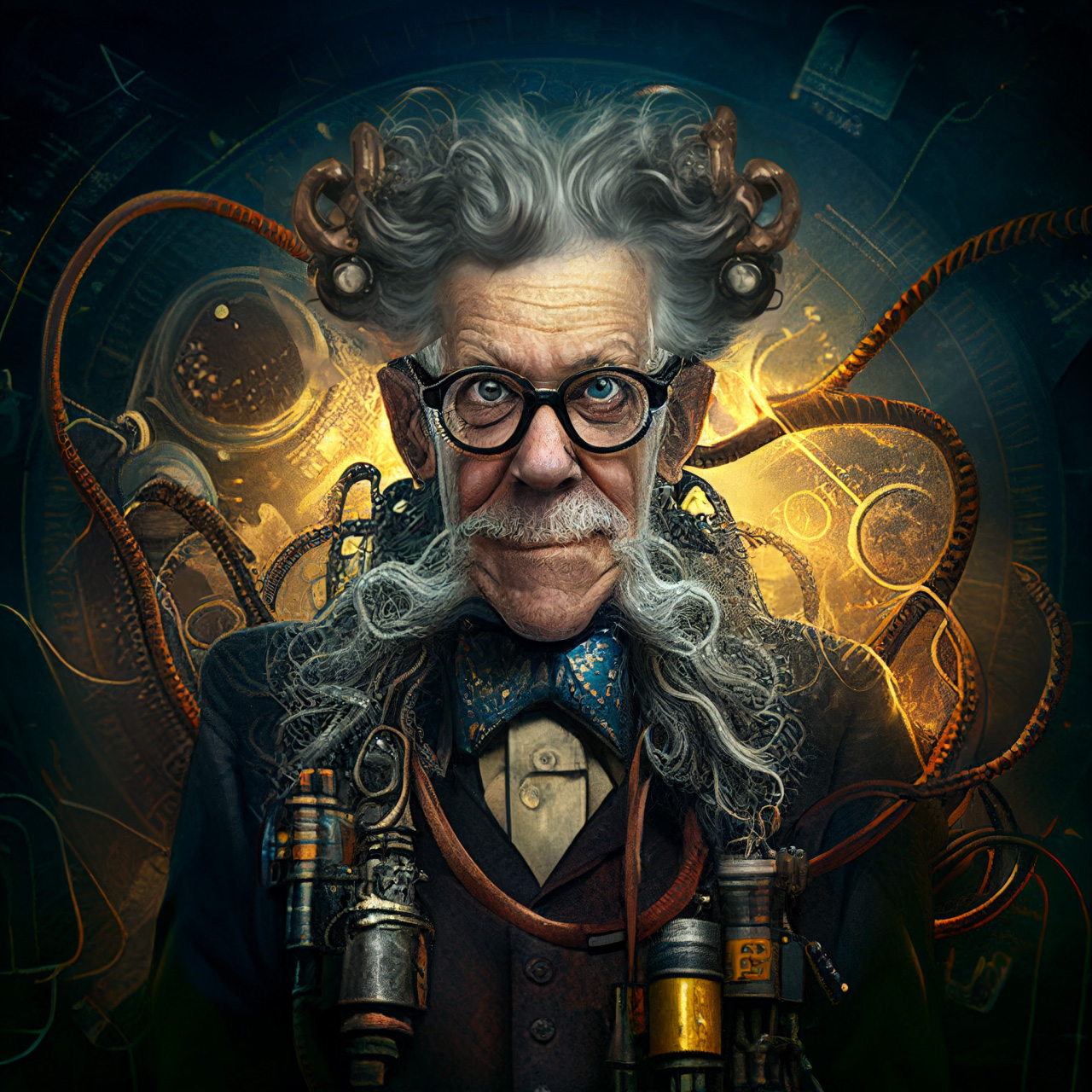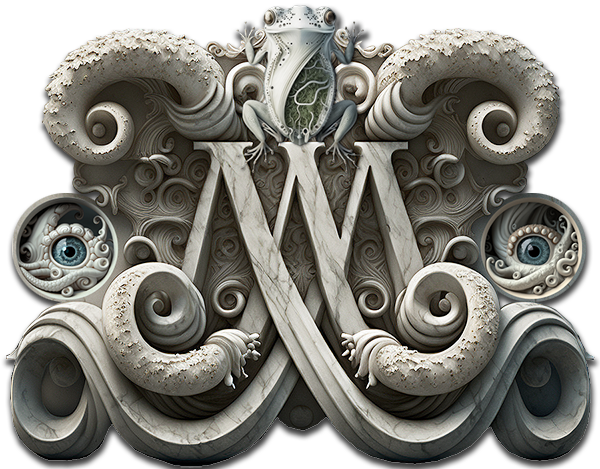
It would be useless to describe the playing of Erich Zann on that dreadful night. It was more horrible than anything I had ever overheard, because I could now see the expression of his face, and could realize that this time the motive was stark fear. He was trying to make a noise; to ward something off or drown something out—what, I could not imagine, awesome though I felt it must be. The playing grew fantastic, dehnous, and hysterical, yet kept to the last the qualities of supreme genius which I knew this strange old man possessed. I recognized the air—it was a wild Hungarian dance popular in the theaters, and I reflected for a moment that this was the first time I had ever heard Zann play the work of another composer.
Louder and louder, wilder and wilder, mounted the shrieking and whining of that desperate viol. The player was dripping with an uncanny perspiration and twisted like a monkey, always looking frantically at the curtained window. In his frenzied strains I could almost see shadowy satyrs and bacchanals dancing and whirling insanely through seething abysses of clouds and smoke and lightning. And then I thought I heard a shriller, steadier note that was not from the viol; a calm, deliberate, purposeful, mocking note from far away in the West.
At this juncture the shutter began to rattle in a howling night wind which had sprung up outside as if in answer to the mad playing within. Zann’s screaming viol now outdid itself emitting sounds I had never thought a viol could emit. The shutter rattled more loudly, unfastened, and commenced slamming against the window. Then the glass broke shiveringly under the persistent impacts, and the chill wind rushed in, making the candles sputter and rustling the sheets of paper on the table where Zann had begun to write out his horrible secret. I looked at Zann, and saw that he was past conscious observation. His blue eyes were bulging, glassy and sightless, and the frantic playing had become a blind, mechanical, unrecognizable orgy that no pen could even suggest.
A sudden gust, stronger than the others, caught up the manuscript and bore it toward the window. I followed the flying sheets in desperation, but they were gone before I reached the demolished panes. Then I remembered my old wish to gaze from this window, the only window in the Rue d’Auseil from which one might see the slope beyond the wall, and the city outspread beneath. It was very dark, but the city’s lights always burned, and I expected to see them there amidst the rain and wind. Yet when I looked from that highest of all gable windows, looked while the candles sputtered and the insane viol howled with the night-wind, I saw no city spread below, and no friendly lights gleamed from remembered streets, but only the blackness of space illimitable; unimagined space alive with motion and music, and having no semblance of anything on earth. And as I stood there looking in terror, the wind blew out both the candles in that ancient peaked garret, leaving me in savage and impenetrable darkness with chaos and pandemonium before me, and the demon madness of that night-baying viol behind me.

